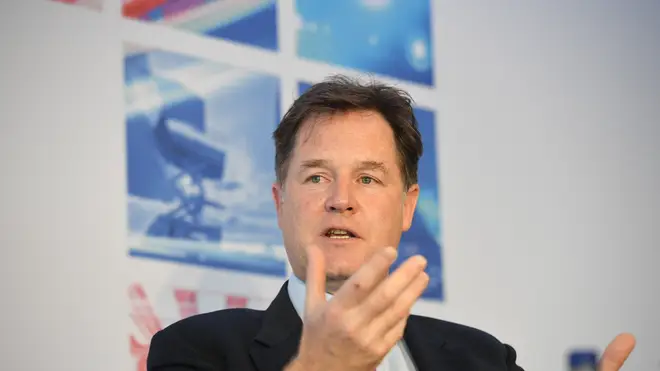
Oli Dugmore 4am - 7am
26 February 2022, 06:24

Authorities in Moscow earlier announced a ‘partial restriction’ on the site after Facebook limited the accounts of several Kremlin-backed outlets.
Facebook is prohibiting Russian state media from advertising or monetising on its platform amid the invasion of Ukraine.
The firm’s head of security policy, Nathaniel Gleicher, said in a statement: “We are now prohibiting Russian state media from running ads or monetising on our platform anywhere in the world.
“We also continue to apply labels to additional Russian state media.
We are taking additional steps in response to Russia's invasion of Ukraine: https://t.co/P7OmjN0Iuu
— Nick Clegg (@nickclegg) February 26, 2022
“These changes have already begun rolling out and will continue into the weekend.”
Mr Gleicher added Facebook was “closely monitoring” the situation in Ukraine and would “keep sharing steps we’re taking to protect people on our platform”.
Former deputy prime minister Sir Nick Clegg, vice president of global affairs at Facebook’s parent company Meta, shared Mr Gleicher’s post with the caption: “We are taking additional steps in response to Russia’s invasion of Ukraine”.
Earlier, Sir Nick said Russia had limited access to Facebook after the social media provider refused to stop fact-checking and labelling content from state-owned organisations.
Russian authorities announced the “partial restriction” when Facebook limited the accounts of several Kremlin-backed outlets over the invasion of Ukraine.
Russian state communications watchdog Roskomnadzor said it had demanded that Facebook lifts the restrictions it placed on Thursday on state news agency RIA Novosti, state TV channel Zvezda, and pro-Kremlin news sites Lenta.Ru and Gazeta.Ru.
Sir Nick said that “ordinary Russians are using our apps to express themselves and organise for action” and the company wants “them to continue to make their voices heard”.
Meta has drawn up rules to deal with transparency around state-controlled media outlets because it believes people should know if the news they read is coming from a publication that may be under the influence of a government.
Adverts and posts from state-controlled media outlets on Facebook and Instagram are labelled prominently.
Labels are also put on various sections of the social media pages including on the Instagram profiles, the “About this Account” section of Instagram accounts and the transparency section of their Facebook page.